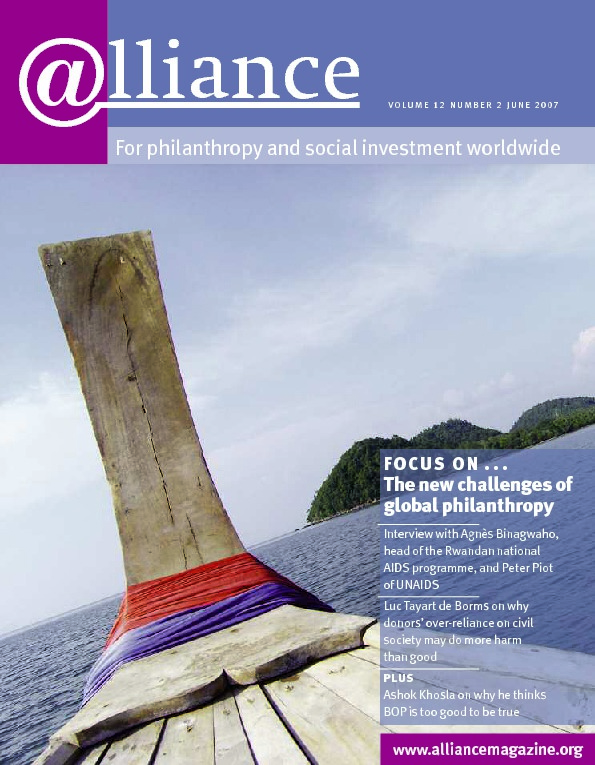Among the many interesting points that can be debated about the merits and demerits of ‘philanthrocapitalism’, the question of how giving makes the donor feel is not one of them. Thus, I believe Matthew Bishop (March 2007 issue of Alliance) misses the primary thrust of my criticism of the philanthropcapitalistic enterprise. My point is not to defend some mushy idea of feel-good philanthropy (which may or may not be present in different forms of giving) but rather to challenge the claimed superior efficacy of business-oriented philanthropy.
There are at least four areas in which serious questions arise about the assumptions and consequences of philanthrocapitalism:
Achieving demonstrable impact. Given the enormous complexity of variables and causality in social change, claims of superior impact seem overblown. To my knowledge, no studies have been done comparing the results of philanthrocapitalism to other forms of philanthropy.
Unintended consequences. By translating the definition of desirable outcomes to that which is most easily measurable (‘objective bottom lines’), the business approach to philanthropy risks missing or distorting some of the most important aspects of work in the social sector.
Top-down influence. Much of the wisdom needed to address social problems resides in the communities in which they occur. Many would-be social ‘investors’ tend to forget this and seek to implement their programmes solely from the top down.
Effect on civil society. The delicate balance in civil society among diverse civic interests and value systems can easily be disrupted by funders who treat recipients as mere agents for their own work.
Of course, rigour, strategy and measurement are components of most good philanthropy, but they are only beneficial if pursued within a framework that takes into account the broader context of civil society.
Bruce Sievers
Visiting Scholar, Stanford University




Comments (0)